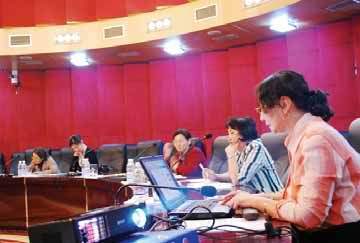Long interviews, feverish desk research, writing, consolidation, verification of information, it is all well under way with the ‘Shadow Report’ taking shape in many countries around the world. Mongolia is one of those countries and a deeper look reveals it to be a great example of the difficulties, challenges and opportunities that arise from this task.
The Country Core Group (CCG), a coalition of Mongolian CSOs working on various issues, including aid effectiveness with the support of the Reality of Aid Network, has taken on the task of preparing Mongolia’s Shadow Report. To date, the CCG was able to interview representatives from 10 ministries, each interview lasting between 2 to 3 hours. From an intended 26 donor organizations, the CCG however was only able to interview a total of 7 representatives. The challenge was that a majority of embassies and bi-lateral donors declined CCG’s invitation letters, reasoning that they are not in a position to provide any information. If CSOs would like to access their data they have to speak to the ministry of finance instead.
In spite of the challenges, work on the Shadow Report provided new opportunities for engagement with government and donors as meetings led to contact and new focal points. Urantsooj Gombosuren, Executive Director of the Centre for Human Rights and Democracy (CHRD) and CCG member, ensured the support of the presidential office to organize a donor validation consultation, after meeting with an advisor to the president on civil society participation and human rights. The meeting is now scheduled to take place in the week 14-18th of March.

